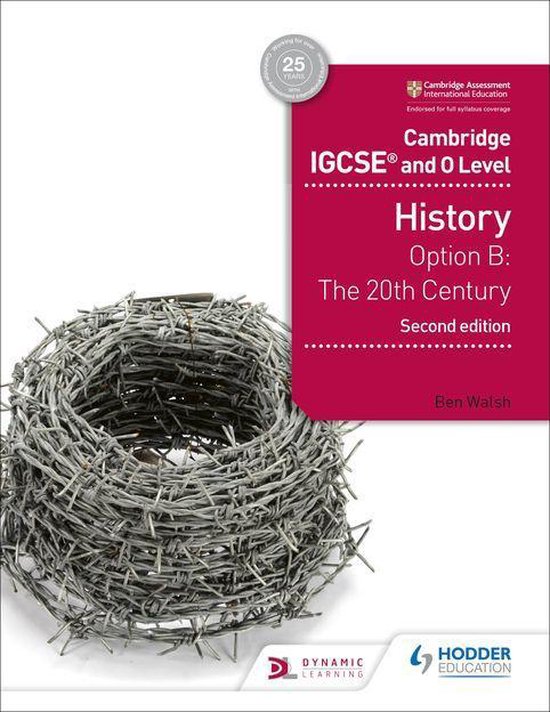History igcse core content review
Weaknesses of league of nations (History igcse).docx
https://www.markedbyteachers.com/gcse/history/what-were-the-consequences-of-the-
failure-of-the-league-in-the-1930s.html
https://igcse-history.weebly.com/why-had-international-peace-collapsed-by-1939.html
https://www.historyonthenet.com/why-did-the-league-of-nations-fail
file:///C:/Users/User/Downloads/To_what_extent.docx.pdf
Successes of league of nations:
• The league’s organization was quick to react at times. In 1921 Germany and Poland
were fighting over the land of Upper Silesia.
• In 1925, the League helped to resolve a dispute between Greece and Bulgaria. Both
these nations have a common border.
• The League then sent experts to the area and decided that Greece was to blame and
fined her £45,000. Both nations accepted the decision.
• The league of nations helped free 200,000 slaves.
• In 1923 the League faced problems in Turkey. The League failed to stop a bloody war in
Turkey, but it did respond to the humanitarian crisis caused by this war. 1,400,000
refugees had been created by this war with 80% of them being women and children.
The League sent doctors from the Health Organization to check the spread of disease
and it spent £10 million on building farms, homes etc. for the refugees. Money was also
invested in seeds, wells and digging tools and by 1926, work was found for 600,000
people
Failures of the league of nations:
• A big weakness of the league was the self-interest of its leading members. The League
depended upon Britain and France to provide firm support in times of crisis. However,
these countries were too nationalistic and when conflicts did occur neither Britain or
France was willing to abandon their own self-interests to support the league.
• When the league started for business in January 1920 the American chair was empty.
America never joined the league.
• When a crisis occurred, the League was supposed to act quickly. However, the League
met too infrequently and took too long to make decisions. Its democratic approach
meant that it took a long time to reach a decision and often a decision would not be
reached until it was pointless.
, • The league was unable to stop Fascist dictatorships taking power in Germany, Italy and
Japan.
English book
Question plan done
Answer to find on grade saver
Answer to finish
Answer in book
Memorized
To do at home
Questions:
• Why did the league of nations fail? (6)
• Who was Lloyd George/Clemenceau/Wilson? (4:) (Pages in textbook)
• What were the motives and aims of the big three at Versailles? (4) (Pages in textbook)
• Describe the Anglo German naval agreement. (4)
The Anglo-German Naval Agreement of 18 June 1935 was a naval agreement between the
United Kingdom and Germany regulating the size of the Kriegsmarine in relation to the Royal
Navy. The Anglo-German Naval Agreement broke the terms of the Versailles Treaty by allowing
Germany to have more ships than agreed. It showed that Britain was more concerned with
protecting itself than upholding the Treaty of Versailles. The Anglo-German Naval Agreement
fixed a ratio whereby the total tonnage of the Kriegsmarine was to be 35% of the total tonnage
of the Royal Navy on a permanent basis. It was registered in the League of Nations Treaty Series
on 12 July 1935. The agreement was abrogated by Adolf Hitler on 28 April 1939.
• Describe the Stresa front pact (4).
The Stresa Pact was an agreement between Britain, France, and Italy which formalized
opposition to German rearmament. It committed Britain, France and Italy to work together
against Germany. Even though it was negotiated at the same time as the Abyssinian Crisis, it did
not once mention Abyssinia. It proposed measures to counter Hitler's open rearmament of
Germany in defiance of the Versailles Peace Settlement. Together these countries formed the
“Stresa Front” against German aggression, but their decisions were never implemented.
• Why did all the victors not get everything they wanted? (6)
, All victors didn’t get everything they wanted because the allies had different opinions on
things. For example, the French wanted to cripple Germany, so they wouldn’t have the power
to cause another war. On the other hand, Britain and America didn’t want to be to harsh on
Germany because they thought that this could result into another war. France was unhappy
with Germany being let off easy. Britain and France also disagreed with Wilson’s 14 points;
Clemenceau commented: “even god only needed 10 commandments”. Therefore, in the end
Woodrow Wilson also did not get his ’14 points’ established because the other powers did not
agree with them. Overall, the victors were limited in their choices by each other’s differences.
Another reason all victors didn’t get everything that they wanted was because they couldn’t
always put their self-interests to protect other countries. The Abyssinian crisis is a great
example. On November 7th, the league placed sanctions on Italy for invading Abyssinia. France
and Britain risked their good relationship with Italy to protect Abyssinia. The league needed
Italy because it provided exports for the country however, they still helped Abyssinia. This
shows that since the victors didn’t put themselves first by helping other countries, they often
risked the things they wanted. Another example is the fight of getting Upper Silesia between
Poland and Germany. Even though France wanted to cripple Germany, they league still had to
give Germany some areas of upper Silesia to make things fair instead of following their self-
interests and causing more conflict.
• Could the treaties be justified at the time? (10)
The treaty could have been justified because it was too harsh on Germany since it caused
economic and social problems in the country. The treaty was unfair towards Germany, it put all
the war guilt on its people. The treaty even affected the people who had nothing to do with the
war. War left 600,00 widows and 2 million children without fathers in Germany- however the
treaty spared no sympathy and made Germany pay big reparations. Due to the treaty’s harsh
terms, the state was spending about one-third of its budget on reparations instead of spending
it on struggling families. There were also acute shortages of food and 300,000 Germans died
from starvation and hyperthermia in 1918. The treaty also humiliated the Germany by army
limits and war guilt. This caused many violent uprisings to take place which led to Germany
becoming an unstable democratic republic. When Germany was unable to pay reparations,
French and Belgian troops invaded the Rhineland which was completely allowed under the
TOV. The French expelled over 100,000 workers and took Germany’s goods. Germany decided
to go on strike and print more money which led to hyperinflation. The hyperinflation caused
social problems in Germany and extremist groups started rising.
Another reason the treaty could have been justified is because it didn’t give all the victors
what it wanted. All victors didn’t get everything they wanted because the allies had different
opinions on things. For example, the French wanted to cripple Germany, so they wouldn’t have
the power to cause another war. The treaty didn’t give the French justice after all they’ve been
through because of Germany. On the other hand, Britain and America didn’t want to be to
harsh in Germany because they thought that this could result into another war. France was
unhappy with Germany being let off easy. Britain and France also disagreed with Wilson’s 14
points; Clemenceau commented: “even god only needed 10 commandments”. Therefore, in
the end Woodrow Wilson also did not get his ’14 points’ established because the other powers





